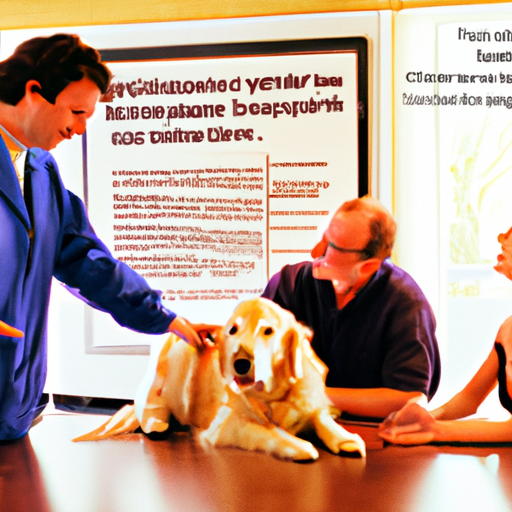As a caregiver to your furry friend, it can be terrifying to witness them having a seizure. The good news is, there are ways to manage and even prevent these episodes. Here’s your guide on how to stop seizures in dogs.
Understanding Canine Seizures
Canine seizures manifest in several forms – from unusual rigidity to uncontrollable shaking. These episodes can last from a few seconds to several minutes.
While the exact cause remains unknown, some potential triggers include:
- Exposure to toxins
- Brain tumors
- Infections impacting the nervous system
- Certain genetic conditions
Recognizing a Seizure
To help your pet effectively, you need to recognize the signs of a seizure. Symptoms may include:
- Sudden collapse
- Jerking movements
- Loss of consciousness
- Drooling or foaming at the mouth
- Twitching muscles
Responding to a Seizure
If you find your dog having a seizure, here are the steps you should follow:
- Stay calm: Your dog needs you to be their rock during this distressing time.
- Ensure safety: Clear the area around your dog to prevent them from injuring themselves.
- Do not restrain: You might feel the urge to hold your dog, but this may cause more harm.
- Time the seizure: This information can be crucial for your vet to determine the severity and potential treatment options.
Preventing Future Seizures
While not all seizures can be prevented, you can take measures to reduce their frequency and severity:
- Regular Vet Check-ups: Routine vet visits can help detect any underlying health conditions that might be causing seizures.
- Medication: If seizures become frequent, your vet might prescribe anticonvulsant medication.
- Balanced Diet: A healthy diet can significantly impact your dog’s overall health, potentially reducing seizure incidents.
- Avoid Triggers: If specific triggers have been identified, try to keep your dog away from them.
FAQs
Q: Can a dog recover from a seizure?
A: Yes, most dogs recover from seizures. However, if seizures become frequent or last longer than a few minutes, it’s crucial to seek veterinary help.
Q: Are seizures painful for dogs?
A: Seizures can be frightening, but they’re not typically painful. However, injuries can occur during a seizure, which could cause discomfort.
Q: Should I take my dog to the vet after one seizure?
A: Yes, any seizure should be reported to your vet. They can determine if it’s a one-time occurrence or indicative of a more serious problem.
Q: Can diet impact a dog’s seizures?
A: Yes, a balanced diet can contribute to overall health and potentially reduce seizure frequency. Discuss dietary changes with your vet.



